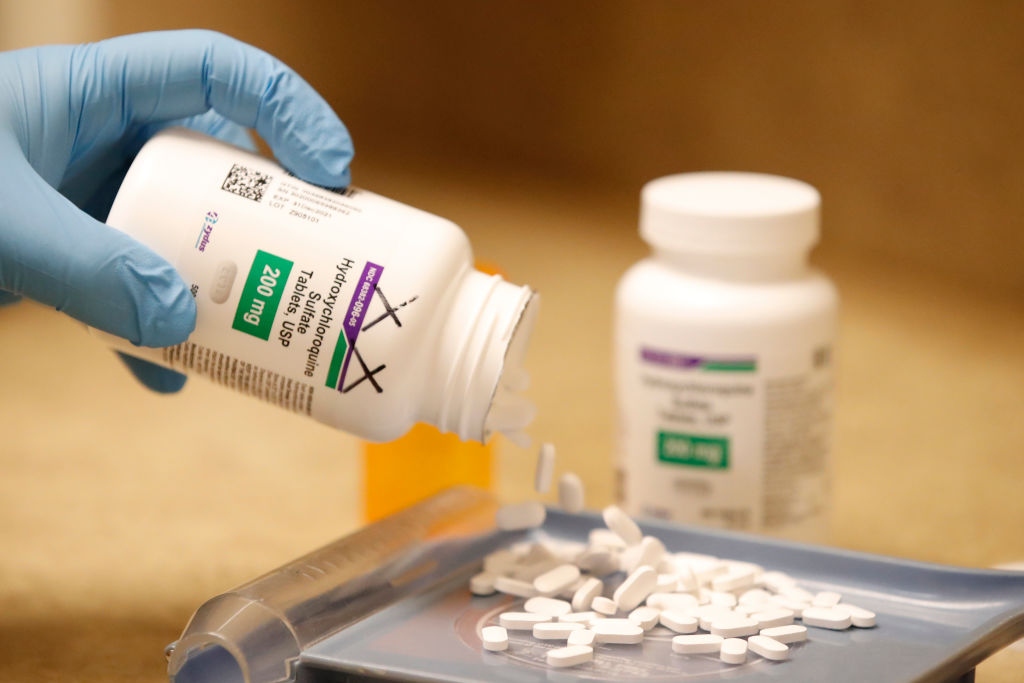Hydroxychloroquine didn't protect health care workers from coronavirus, study shows


A free daily email with the biggest news stories of the day – and the best features from TheWeek.com
You are now subscribed
Your newsletter sign-up was successful
Another study is warning against President Trump's debunked coronavirus treatment.
Despite being studied as an early coronavirus treatment, studies have found the malaria drug hydroxychloroquine ineffective and even dangerous when used to fight coronavirus. A study published Wednesday added to that evidence, finding that the drug was ineffective in preventing health care workers from contracting coronavirus.
For the study published in JAMA Internal Medicine, researchers at the University of Pennsylvania focused on 125 health care workers. Some of them received hydroxychloroquine for eight weeks from April to July, while others got a placebo. Throughout that time, four of the 64 workers who got the drug ended up with COVID-19, while four of the 61 who got the placebo did as well. Six of those who tested positive developed coronavirus symptoms, but none needed to be hospitalized. As a result, the researchers said they "cannot recommend the routine use of hydroxychloroquine" to prevent infections among health care workers.
The Week
Escape your echo chamber. Get the facts behind the news, plus analysis from multiple perspectives.

Sign up for The Week's Free Newsletters
From our morning news briefing to a weekly Good News Newsletter, get the best of The Week delivered directly to your inbox.
From our morning news briefing to a weekly Good News Newsletter, get the best of The Week delivered directly to your inbox.
In June, a clinical trial published in the New England Journal of Medicine also showed hydroxychloroquine wasn't effective in preventing coronavirus infections after exposure to the virus. The FDA has since removed its emergency use authorization for the drug as a coronavirus treatment, and in July it released a study showing how the drug could cause serious side effects in hospitalized patients.
A free daily email with the biggest news stories of the day – and the best features from TheWeek.com
Kathryn is a graduate of Syracuse University, with degrees in magazine journalism and information technology, along with hours to earn another degree after working at SU's independent paper The Daily Orange. She's currently recovering from a horse addiction while living in New York City, and likes to share her extremely dry sense of humor on Twitter.
